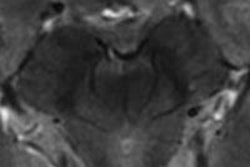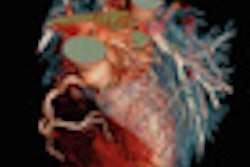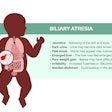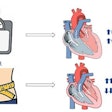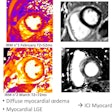
LONDON (Reuters) - Computer analysis of brain scans could help predict how serious or long-term a psychotic patient's illness may become and help doctors make more accurate decisions about how best to treat them, researchers said on Monday.
In a study in the journal Psychological Medicine, scientists from King's College London's Institute of Psychiatry and University College London's computer science department found that using computer algorithms to analyze MRI brain scans can predict a patient's outcome.
"This is the first step towards being able to use brain imaging to provide tangible benefit to patients affected by psychosis," said Paola Dazzan of King's, who co-led the study.
She said this could in the future lead to a quick, reliable way of predicting how a patient's illness will develop, allowing doctors to give the best treatments to those most in need and avoid giving long courses of antipsychotic drugs to people with only very mild forms of psychosis.
Psychosis is a condition that affects people's minds, altering the way they think, feel, and behave. It can also be accompanied by hallucinations and delusions.
The most common forms of psychosis are part of mental illnesses such as schizophrenia -- which affects around 24 million people worldwide -- and bipolar disorder, but psychotic symptoms can also occur in conditions like Parkinson's disease and alcohol or drug abuse.
Experts say many patients recover from psychosis with minimal symptoms, but for others, the psychosis can persist and affect their ability to function normally. But at the moment psychiatrists have no good way of assessing how likely a person who has had one psychotic episode is to go on to have more.
Dazzan's team worked with 100 patients and took MRI brain scans when they came into health clinics with their first psychotic episode. The researchers also scanned the brains of 91 healthy people as a control group.
The patients were followed up around six years later and put into groups of those who had developed either continuous, episodic, or intermediate psychosis, depending on whether their symptoms continued or faded away during this time.
The team then analyzed in detail the scans from 28 people who had continuous psychosis, 28 patients with an episodic course, and 28 healthy controls and used the data gained to "train" computer software based on pattern recognition to enable it to distinguish between different illness severities.
When the resulting algorithm was used on scans of patients who had had a first psychotic episode, it was able to pick out those who had gone on to develop continuous psychosis and those who went on to develop a more benign, episodic psychosis in seven out of 10 cases, the researchers said.
"Although we have some way to go to improve the accuracy of these tests and validate the results on independent large samples, we have shown that in principle it should be possible to use brain scans to identify ... patients who are likely to go on to have a continuous psychotic illness and those who will develop a less severe form," said Janaina Mourao-Miranda, who worked with Dazzan on the study.
"Structural MRI scans can be obtained in as little as 10 minutes, so this technique could be incorporated into routine clinical investigations," she added.
By Kate Kelland
Source: http://bit.ly/swCEfn
Psychological Medicine, online November 7, 2011.
Last Updated: 2011-11-07 12:35:12 -0400 (Reuters Health)
Copyright © 2011 Reuters Limited. All rights reserved. Republication or redistribution of Reuters content, including by framing or similar means, is expressly prohibited without the prior written consent of Reuters. Reuters shall not be liable for any errors or delays in the content, or for any actions taken in reliance thereon. Reuters and the Reuters sphere logo are registered trademarks and trademarks of the Reuters group of companies around the world.




